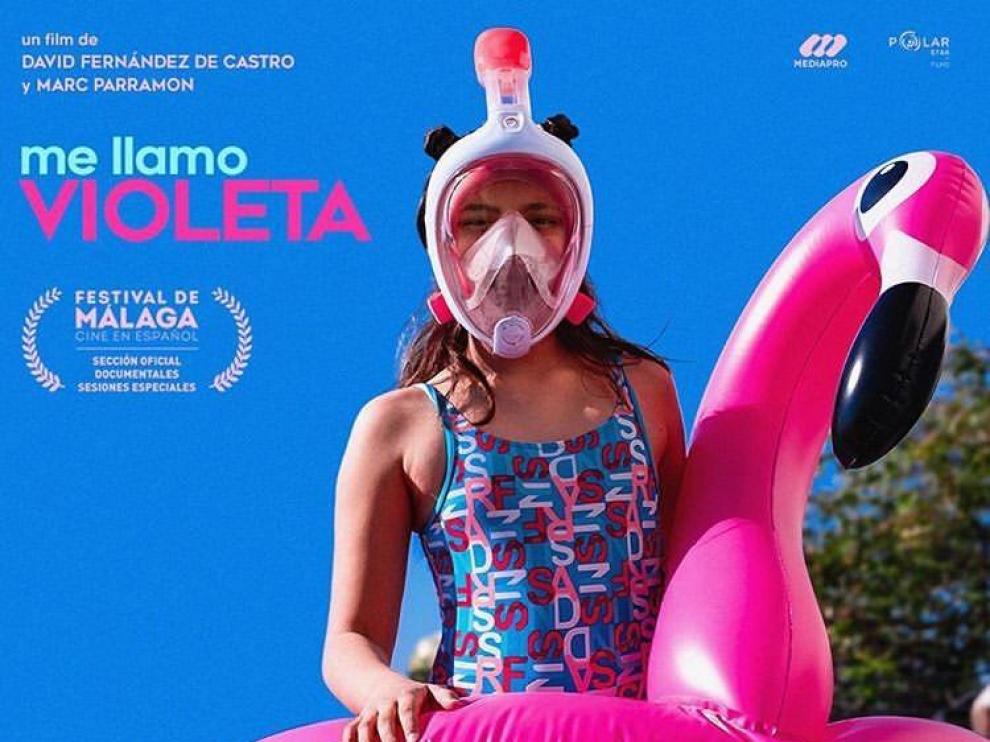"How do I know you're a boy or a girl?" With this question, not so simple, begins the documentary 'My name is Violet' , which exposes the challenges faced by transgender children and their families, and has arrived this Friday in theaters.
Violeta, daughter of porn actor Nacho Vidal and Franceska Jaimes, surprised her parents at age six by saying she wanted to dress and call herself a child. The film, directed by David Fernández and co-produced by Mediapro and Polar Star Films, tells her story and another one with less luck, that of Alan, a trans minor who took his own life in 2015 with 17 years victim of bullying.
"The ultimate goal of this documentary is to help parents who do not have information and do not know how to act when they are presented with the case of having a transsexual son or daughter," explains Efe Fernández. "Also, we want to reach a general public so that you have a vision of the reality about these children, since there is hardly any information on the subject," he adds.
Given the question posed at the beginning, there are no clear answers. A "I do not know", "I'm not sure", doubtful faces or shrug, is what some of the children who play Violeta in the documentary do and say, since the juvenile prosecutor's office would not allow her to appear in a recognizable way.
"The prosecution did not let us see the face of Violeta for the simple and mere fact that she is a transgender girl." Here is the paradox that we want to denounce, and that these children who are not transgender can be recognized, while Violeta can not be seen," explains the director.
"A man can not tell me that he does not know my daughter, who does not know my family, who does not know the situation, that I can not call my daughter Violeta", criticizes Nacho Vidal in the documentary, since his daughter had to wait three years to have her name changed on the DNI.
The other story, that of Alan, puts a more bitter counterpoint to its tragic end despite the support that he had at home. "We wanted to emphasize that not all cases are a success, but rather the opposite, the transit is very complicated in minors," says Fernandez.
'Me llamo Violeta', un documental sobre la hija transgénero de Nacho Vidal
"¿Cómo sé yo que eres un chico o una chica?". Con esta pregunta, no tan simple, empieza el documental 'Me llamo Violeta' , que expone los desafíos a los que se enfrentan los menores transgénero y sus familias, y que ha llegado este viernes a los cines.
Violeta, hija del actor porno Nacho Vidal y de Franceska Jaimes, sorprendió a sus padres a los seis años diciendo que quería vestirse y llamarse como una niña.
La película, dirigida por David Fernández y coproducida por Mediapro y Polar Star Films, cuenta su historia y otra con menos suerte, la de Alan, un menor 'trans' que se quitó la vida en 2015 con 17 años víctima del acoso escolar.
"El objetivo final de este documental es ayudar a padres que no tienen información y no saben actuar cuando se les presenta el caso de tener un hijo o una hija transexual", explica a Efe Fernández. "Asimismo, queremos llegar a un público generalista para que tenga una visión de la realidad sobre estos niños, ya que apenas hay información sobre el tema", agrega.
Ante la pregunta planteada al inicio, no hay respuestas claras. Un "no lo sé", "no lo tengo claro", caras dubitativas o encogerse de hombros, es lo que hacen y dicen algunos de los niños y niñas que interpretan a Violeta en el documental, ya que la fiscalía de menores no permitió que apareciera ella de manera reconocible.
"La fiscalía no nos dejó que apareciera el rostro de Violeta por el simple y mero hecho de que es una niña transgénero. Aquí está la paradoja que queremos denunciar, y es que a estos niños que no son transgénero sí que se les puede reconocer la cara, mientras que a Violeta no se la puede ver", explica el director.

